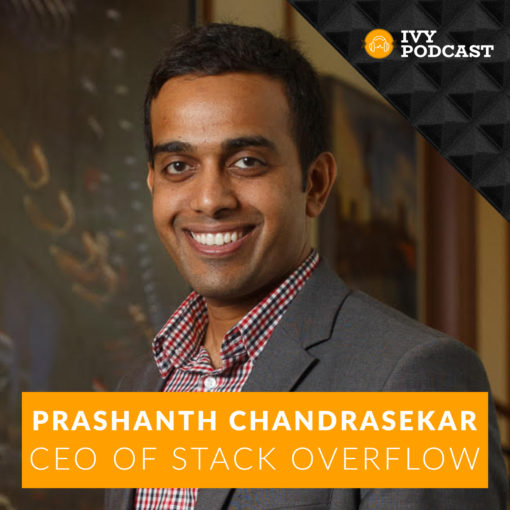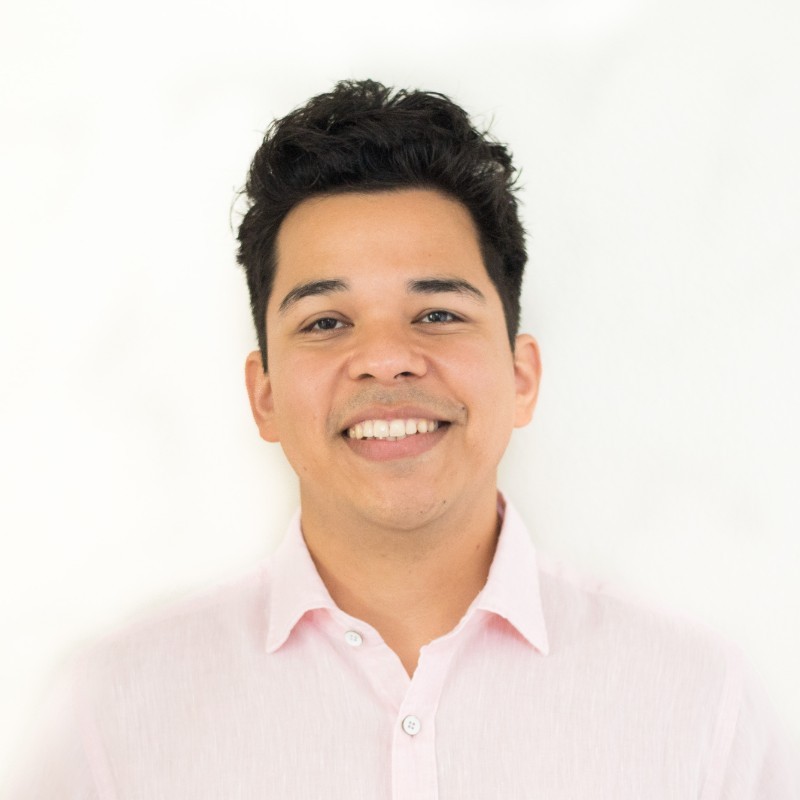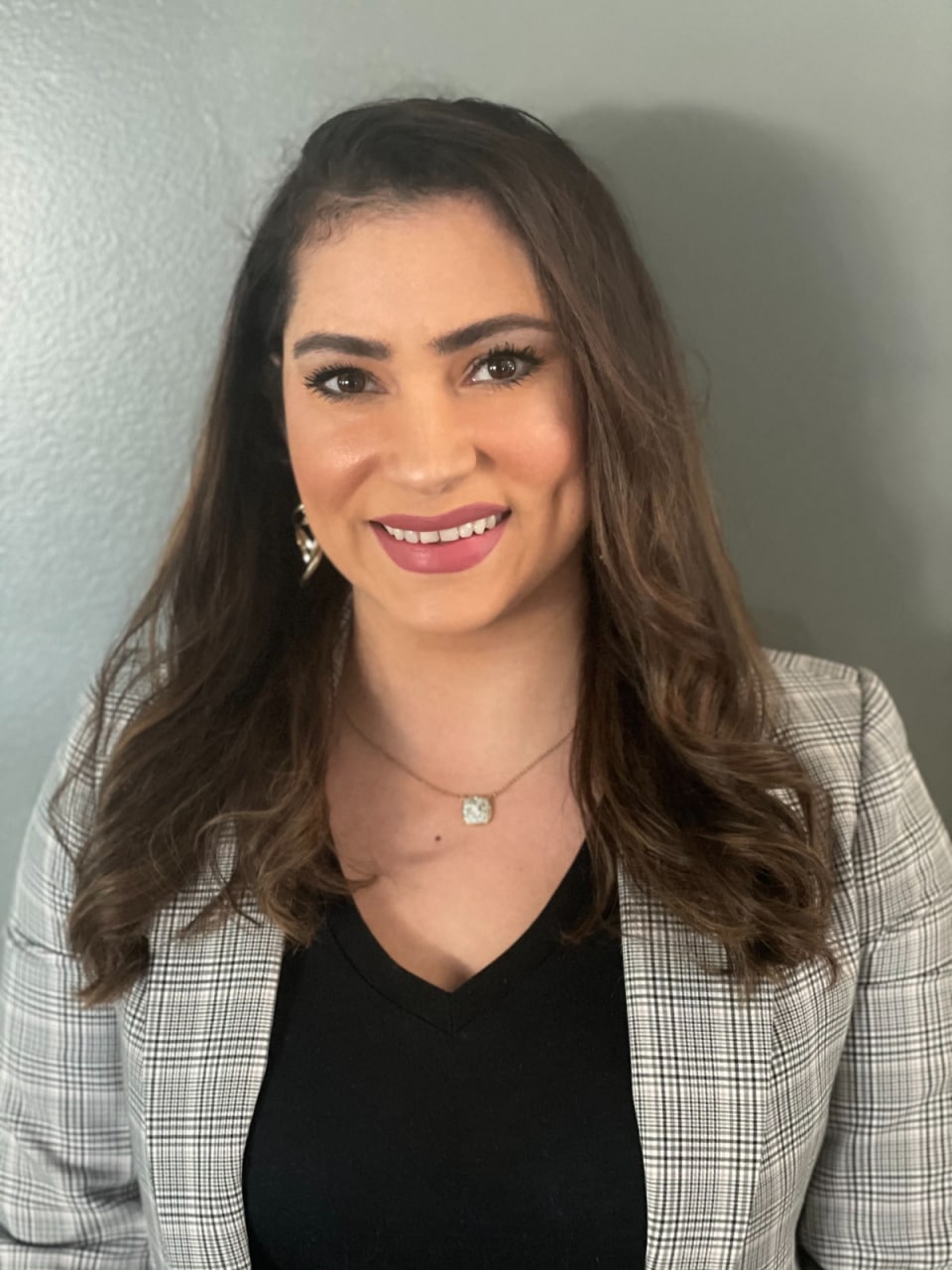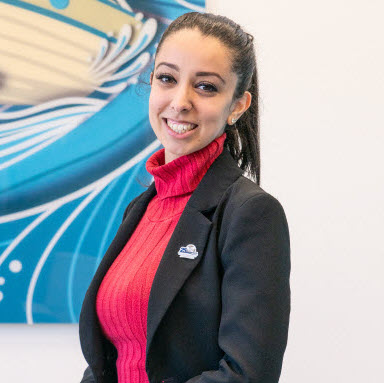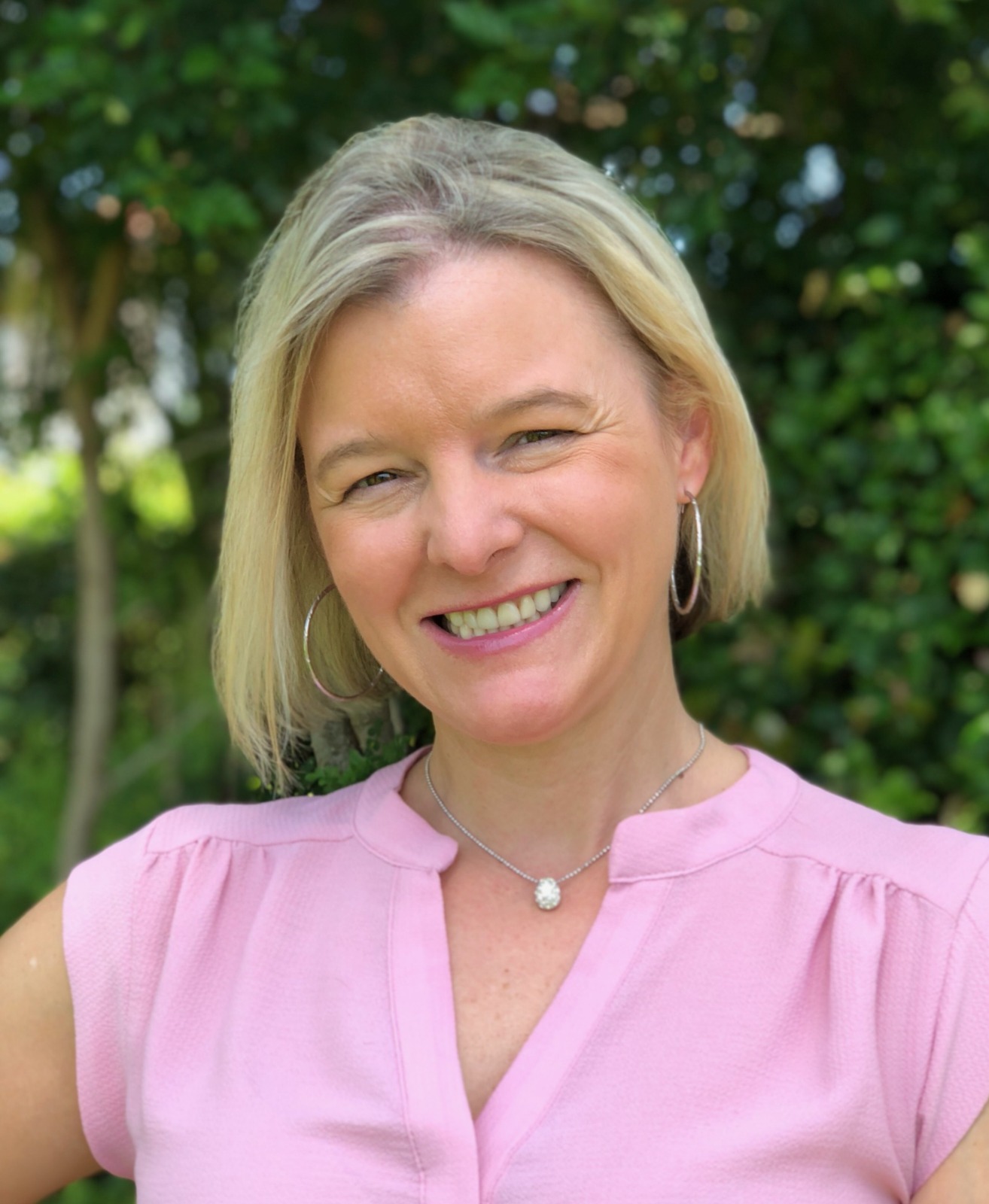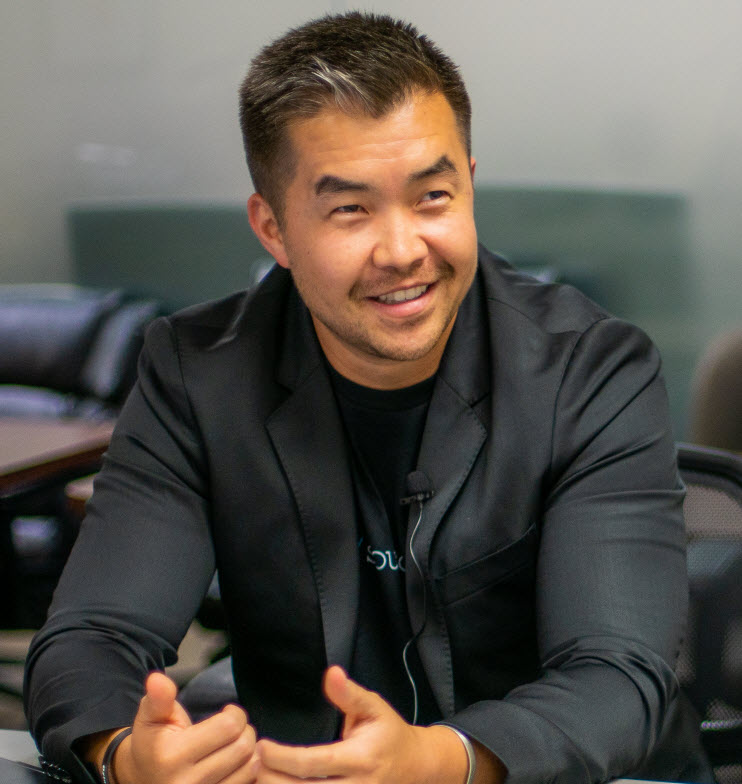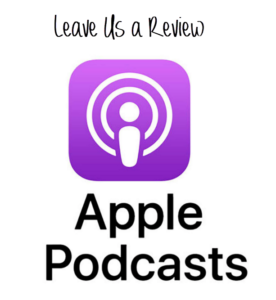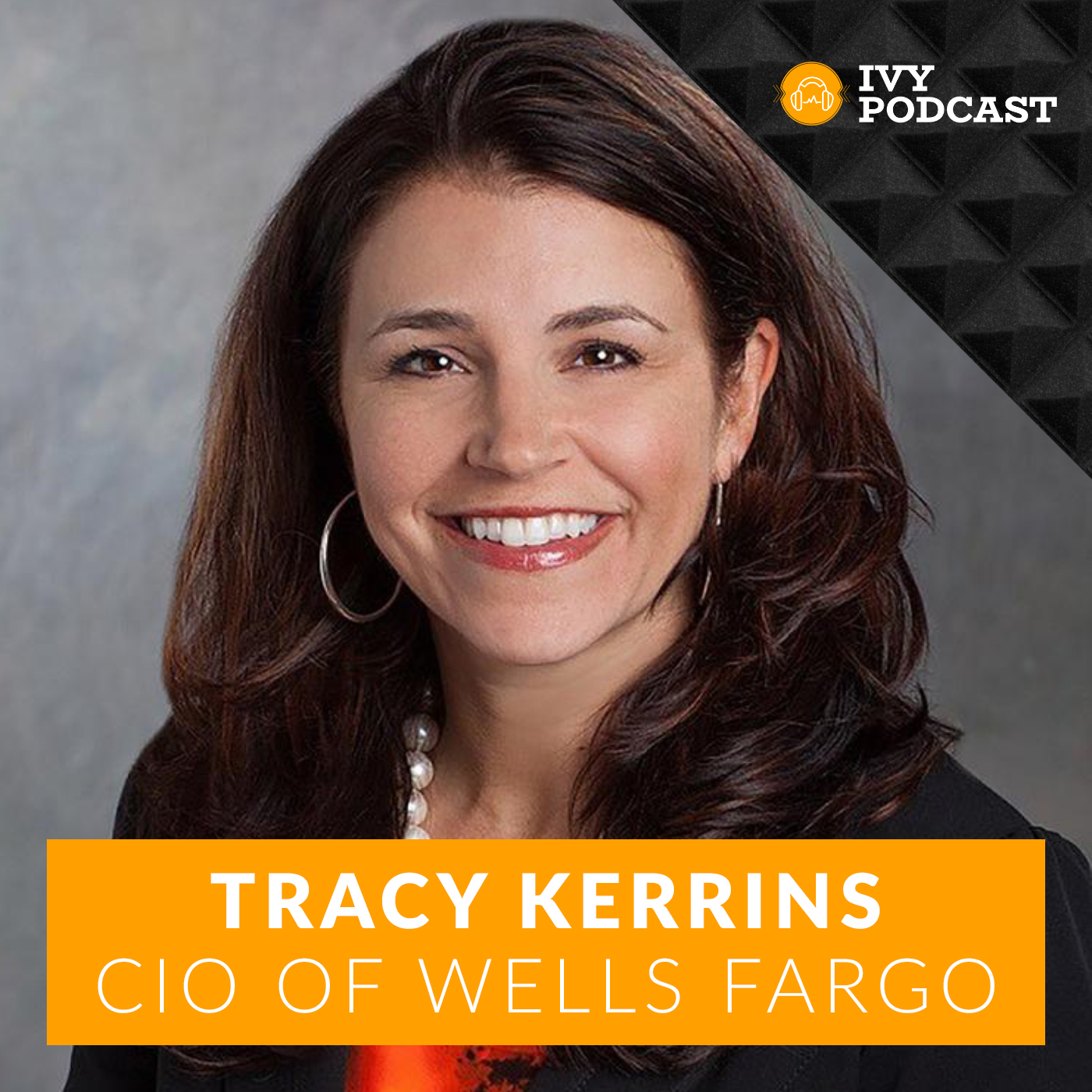
Tracy Kerrins is the Chief Information Officer and head of Enterprise Functions Technology for Wells Fargo Technology, one of the world’s largest and most innovative information technology groups with more than 23,000 talented team members who help keep Wells Fargo at the forefront of America’s diversified financial services companies. As the head of Enterprise Functions Technology, Tracy is responsible for providing technology solutions for Human Resources, Corporate Risk, Finance, Technology, Audit, Legal, Marketing, Stakeholder Relations, Data, and the Chief Operating Office. In addition, she is a member of the Wells Fargo India Private Limited board of directors.
Episode transcription:
[00:00:00] Tracy Kerrins: [00:00:00] Hi, I'm Tracy Kerrins. I am an EVP group, CIO of enterprise functions, technology at Wells Fargo. [00:00:20] Jahn Karsybaev: [00:00:20] Tracy, thanks so much for finding time to join us on the Ivy podcast on this Friday afternoon. Can you tell us a little bit more about your backgrounds, maybe kind of career timeline overview. That would be great to hear. [00:00:32] Tracy Kerrins: [00:00:33] Sure. Hopefully as exciting as it has felt to me through the years, but I actually started off, I have an engineering degree from the University of Michigan, came from a long line of engineers, my dad, grandfather, et cetera. So I was encouraged early on to get interested in coding and technology overall. And kind of carried the torch forward with some family history there and coming out, I got a degree in industrial and operations engineering, and I was very lucky out of college to work. I went to PricewaterhouseCoopers and Big Five consulting was big at the time. But it was very lucky because I got to actually code for many years, probably the first seven or eight years of my career. At the time we were doing a lot of custom application development at a variety of companies, I started off working in the utilities industry. So I was doing a lot of app development for gas and electric companies, which at the time I didn't really appreciate how exciting that can be and really the potential for change. So what I was learning was not just coding and different technologies. I mean, I started off in PowerBuilder and did cold fusion and Siebel, but it was really learning to take kind of legacy outdated. Business processes and use technology to really transform those and thereby the business. And that's been something that really excited me early on that I've carried through my career and is now a really critical part of my job day to day as well. [00:01:58] Jahn Karsybaev: [00:01:58] Well, that's super exciting and it seems like a very diverse background. And then it's also, I want to dive a little bit deeper into kind of the transition from the consultancy and then going into more of a corporate world. So to say, and then moving up the ranks from that perspective before we do that, can you share a little bit more around your current role? What falls under your purview and area of responsibility? [00:02:19] Tracy Kerrins: [00:02:19] Yeah, absolutely. So, I'm the CIO for enterprise functions and what that entails. It's really all the technology that runs that company runs Wells Fargo for our employees. So that's HR, finance risk marketing, legal audit data for the company. It includes all your payroll benefits, everything that really runs the company for employees day to day. So often underappreciated in a way, because when it works, it seems like just very baseline things that we should have. But if it doesn't work, obviously people get very upset. But for me, that's the exciting part, right? Like high risk, high reward, being able to really kind of think [00:03:00] strategically and to the point around what else am I responsible for? So in addition to that technology, I aligned to the corresponding business leaders for each of those spaces. And at Wells Fargo, it's a really exciting time right now because across each of those business verticals, being like HR risk finance, we are in the middle of doing an end-to-end business and technology transformation. So to my earlier point, we have the opportunity right now working with our business partners and saying. How can we do this better? So technology is an enabler. Obviously we bring a lot of technology ideas to the table, but it's also really about how do we streamline and simplify the business process and then use technology to really amplify that. And I get to do that in a lot of different areas right now in my role.So I'm having a really good time. I can imagine if you're a kind of an adrenaline junkie, this is the place to be, which for me is very well suited. [00:03:52] Jahn Karsybaev: [00:03:52] Wow. That's so very exciting. It seems like you're wearing a lot of different hats and overseeing a lot of different spectrums of such a [00:04:00] large organization, which leads me to a further point that I want to discuss with you is around building and fostering a culture of innovation within the organization. But first things first, in terms of some of the trends and ideas that really excite you these days, whether from transformation initiative perspectives that you're leading, or from personal standpoint, something that you researched on your own, share with us any insights or ideas that are super exciting to you. [00:04:27] Tracy Kerrins: [00:04:28] There's a lot going on in the world. I mean, we all know this, right? So obviously artificial intelligence to me, I hesitate to even say it's a trend because I feel like we are full blown into it. But what excites me is I think we've just barely begun to tap into its full potential. And so I am a big proponent of AI and usage of AI, but also in watching where and how it can be used and also the concept of using it responsibly, right? Like the logic built in there and ensuring there's no bias, et cetera, is very top of mind. I am fascinated with autonomous driving. I think that could really change the way we interact as humans in the world.Like I think about financial services, if I can better. Like, or change my commute time, day to day. What will I do with that time? I'm watching the road, but I don't have to, could I bank, could I buy, as a busy working mom, I'm always looking for every minute in the day and how to free that up. And financial services along with all the other things I do in my life are part of that. So I look at how that will change the way people just get around and use their time. And then I also have been just captivated this past year, as I'm sure many with biotech. I know very little about it. I researched some of the vaccines and the technology and the way that the world really came together. And I'm fascinated by that. I think we've made tremendous progress probably in the last year kind of working together across the entire world, as I mentioned. So I'm watching that just with [00:06:00] interests, personal interests. I think it's fascinating. [00:06:03] Jahn Karsybaev: [00:06:03] Yeah. Wow. That's super exciting. And I couldn't agree more with you, your especially interesting aspect on self-driving technologies, recently spent time talking to an executive who they're actually building LIDAR technologies that build the algorithms and essentially software that takes into account a lot of the human behavior when making decisions. So, which is very interesting and very fascinating at the same time. It seems so futuristic. Yeah, very close to where we are these days. [00:06:32] Tracy Kerrins: [00:06:32] Yeah, exactly. [00:06:33] Jahn Karsybaev: [00:06:33] I have a very loaded question. But I want to, once we get your perspective on just the overall strategy around building and fostering a culture of innovation within your organization or on your teams or within your verticals, what are some of the things, in terms of practical strategies or recommendations that really help you do that on a continuous basis, or maybe some things where you have failed and learn something from that particular [00:07:00] experience, share with us. Anything that really helps you do that. [00:07:03] Tracy Kerrins: [00:07:03] Yeah. I mean, I certainly haven't cracked the nut on this. I don't think anyone really has, but I'm less of a fan of having huge, dedicated innovation teams in our business. In my world, what usually becomes the best innovation ideas are leveraging current technologies or even cutting bleeding edge technologies, but using existing technology to create new business processes, right enhancements to customer and client experience in different ways. So that's what I focus most on. And to do that, I mean, obviously I need to keep a close eye on all innovative technologies out there, we all do as technologists. So I don't mean to diminish that in a way, but it's more to me about watching those and then looking at how they could be used in different ways or in alignment with our business and always with customer and client in mind. So to do that, I think you just have to have a culture where people are free [00:08:00] to bring ideas, even if they're completely out of the box. This is where I go to see the diversity of teams. Everybody's experience in their day-to-day life and world, right. Should pray ideas into your workspace where they say, I saw this, or what about this? And being free to bring those ideas and then free to try them. So what I do is if it's good, I'm like, Hey, that sounds cool. Why don't you go and mess around with that pilot when it comes back. Right fails. That's okay. But like, we took a look, right. If it looks like it has legs, then let's go and start talking to more people about it. Like pull business partners in to start, then the ideas really start to build. But you want to poke around at them a little bit and give them the room and space to do that. They don't often have the time to do it, but I find people are really passionate about their ideas. So they bring something to the table and they're very willing to do that on the side or at night, because it's something they're really excited about. And if someone's really excited about it, then that's usually [00:09:00] the best way to get momentum. [00:09:03] Jahn Karsybaev: [00:09:03] I love those examples and I hear that a lot from other organizations trying to do that. We're all about ideas. But at the end of the day, everyone's full of ideas. But when it comes to actual execution is a completely different story. And I love the analogy that you were making in terms of, yes, it's a personal passion of yours that you are in fact, bringing that idea to me and for you to be able to recognize that energy, that passion and give them the autonomy to run with that bond and experience. Because at the end of the day, it's not really a failure. It's an experiment for us to learn something from that and see if we, if it has the legs to take this further, so those are great examples. There's one book that really comes to mind. I always recommend it to everyone. It's a book by a former Harvard professor of mine. He wrote two books on experimentation matters and experimentation works and covers a lot of the examples like that, which is specific to what exactly you're talking about. So thank you for that. So for that example on [00:10:00] the other spectrum of innovation and just building, looking into that future of work. I spent a lot of time talking to other executives at different organizations. And one question that's very, or topic that's very prevalent these days is how are you designing your organization or your teams, and how are you preparing for that next period is coming out through pandemic and the hybrid workplace share with us any thoughts that you may have what's to come, how are you preparing or some of the things that may be working for you when it comes to that future of work? [00:10:34] Tracy Kerrins: [00:10:34] Yeah. Well, I mean, when it comes to, we're heavily remote right now as most companies still are. When we look at the post pandemic Wells Fargo has come out and said, we're going to start bringing people back in September timeframe. After labor day, we do still feel there's value in people being able to collaborate and interact personally in the office. And so we're looking to do that, still trying to decide what to do. Kind of new normal or normal [00:11:00] operating mode will look like. But we are going to go back to the office later in the fall and still drive that in-person collaboration, but with flexibility we're trying to determine what that flexibility looks like and means. But I think about technology. I mean in many companies we've proved that we can work very effectively, many of us remotely. And so we're not taking that for granted. Right. We're building that into what flexible look like, what flexible looks like and what it looks like for technologists to like me or my team, et cetera. I do want to touch on, so that is super top of mind, but always thinking about. In my role, I think about the future, future of work. And that's where I'm always looking at. What does that look like? How we collaborate. So it's similar to what we're talking about, but I look a lot at my, I have three daughters and two of them are twin 14 year olds and an 11 year old and I am constantly watching them and how they communicate with each other, with their peers, how they get information. And to me, that's what I'm always keeping on top of when I think of the future of work. Right? You were talking about innovation late earlier than we were, but that's really, I have to look, I think we all have to look five, 10 years down the road when my daughters are entering the workplace and what will they expect? What will they need? How do we build technology organizations and teams that support, well, first that are a tech destination they want to work in. And what do we need to enable them to be desirable for them? Like, what do we have to have available? And just the way they don't talk to each other, right? They text, they look for videos and input of information and how to so differently. That's what I'm always thinking about with the future of work, I guess, to me, it's future, future of work and whatever that means 10 years down the line. [00:12:45] Jahn Karsybaev: [00:12:45] Right, right. Absolutely. And I love leveraging, I guess, the resources that you have at your disposal immediately and taking into account how, like you're the example you've made on your daughters, how they interact, how they consume information. I think that's super important to get some insights on how the future of work will actually look like. So that's, we can probably spend an entire episode talking about this. So as an executive within your organization being in charge of technology division, I'm pretty sure that surrounding yourself with the top talent A-players is at the top of your mind 24/7, whether you are actively recruiting or not. Share with us a few strategies that really work for you to accomplish that. And more specifically candidates that interview with you. They probably go through multiple rounds of assessments, other interviews, panel, interviews, and so forth when they get to Tracy. As much as that you can share with us, what does the interview with you look like? And more importantly, what do you look for in some of the responses when you talk to prospective candidates? [00:13:54] Tracy Kerrins: [00:13:54] Yeah, well, hopefully it's a positive experience right out of the gay, hopefully by the time they get to me to use those words, hopefully they come out feeling like it was a good use of their time and they learn something just like me. But honestly, I start with , like, I ask people to tell me a little bit about themselves. Talk to me about your background, give me some highlights quickly. What I'm looking for is their ability to give information, but at the right level, kind of summarize important points. I'm also looking for how they describe themselves, their team, the role they played in things. Are they a team player? Is there a lot of eyes, like I'm looking for the role they played but just very casually, like letting them kind of speak and tell their story. But out of that, I look for those nuggets. And then, I mean, the hardest part about interviewing what I'm really looking for is how can I determine if this person is really good at execution strategy and innovation, everyone says they are, and their resumes are going to tell me they are, but how do I really determine that before they're on the team? And so listening to them, I take the nuggets and then I dive a little deeper. See what level of detail they have. And out of that, what I'm really trying to learn is I'm looking for good decision-making. If I'm being honest, like we're, none of us are ever going to make the right decision all the time. But what is so important to me, because that's when I can really say, this person has it. And I trust what they're going to do is because they have good decision-making, are they using data facts? How are they bringing in past experience and failures to change their decision-making process on the go forward? If they had to do it again, would they make the same decision and why are those the nuggets I'm looking for? Because that to me is the most critical thing in a leader in getting someone in on the team. [00:15:42] Jahn Karsybaev: [00:15:42] Although, I appreciate the insight. I appreciate Intel sharing a little bit more about that. And I love that you stressed the importance of the decision-making process versus the actual decision that's been made. What are some of the things that they go through? How do they arrive at a particular decision? I think that's very unique. I think that's a very interesting insight into being able to understand that particular personality. Or a person through that very short conversation. So I think that's very interesting. Thanks for sharing that. [00:16:12] Tracy Kerrins: [00:16:12] Well, and I've been in, I'm sorry, I've been in difficult kind of triaged type situations or the post-mortem and have even gone through that myself and said, look, here's why I made the decision I made. And if I'm being honest, I would make it again because based on what I knew at the time, it was the right decision now, but I know. Here's what we'll do about it. I just think that's so critical, right? [00:16:33] Jahn Karsybaev: [00:16:33] Absolutely. No, I love that example because at the end of the day, how you made that decision is probably more important than the actual decision itself. Oh, that's a great example. When we talk about various strategies to attract the top talent and not only attract, but then retain it on to your teams, to your organization, what are some of the things that really help you achieve that? Or maybe something that hasn't worked and you learn from that. [00:16:58] Tracy Kerrins: [00:16:58] I find that top talent, they want to work on teams where they're challenged. They get to learn and they get to work. They want to be on a high performing team. And they want to have a voice be respected and appreciated. It's kind of simple, it sounds like a simple formula, but it's hard to get there. But creating that high performing team is most critical. I want top talent to want to be on our team to want to be part of it. And to get that for me, culturally, on the team, it's about being candid, transparent, being open to ideas, listening to the team. And that means even creating a culture where like my leaders a lot tell me I'm wrong. And I try to infuse humor to let them know that that's okay. They'll listen. Now go. So what you're saying is that I was completely wrong about this. And that you've done this work and this is the way we should go. And we all kind of laugh, but that's right. And that's good. None of us know the answers and people, if people are afraid to challenge the lead or to ask questions and challenge the thinking you'll never have that high-performing team. And I think that behavior also drives the respect and the voice that they want. And with those behaviors, you're going to have hopefully a good outcome. You'll be delivered. And that's all of those together is what creates that high-performing team. And to me, that's how you retain talent. People want to work on teams that win and are doing great things. Right? And so to me, that's a big part of retention in attracting the same, right? Like the best part is to have people come to you, right? I want to be on your team. But in addition, if they're not right interviewing, as we mentioned, they should hear that and see that in your voice and in your examples, and in talking to other people on the team the passion that they have for the work and how they feel about working there as well. To me, that's the way you attract it should come from you and from your team. There's obvious strategies at scale, right? When we come and represent the company and [00:19:00] things we do, but in the end, it boils down to one-on-one interview discussions and they need to see, feel, and hear that from you. And if it's not authentic, top talent candidates. See right through that. So you really have to start at yourself and your team and how they're acting and working together. [00:19:18] Jahn Karsybaev: [00:19:18] Just recently, I was talking to an executive at Fortune 10 company, a very huge organization. And I asked him why are you participating in a lot of webinars, live events, podcasts, things like that. And one of the things that you mentioned to me was, it really resonated, it's essentially his ability or his opportunity, that opportunity to really share almost his leadership style or give a glimpse into the type of culture within the team, within the organization, what are the things they value? And he mentioned that there are so many programs prospective candidates that actually listened to those types of talks, and then they bring that to the interview as part of that homework that they have done which also then gives him a really great indicator of how much they're interested. So I can definitely relate to a lot of the examples that you're talking about. And also the fact that you are also repairing with us as an example, to be able to share some of, some of those strategies. I think that's very unique and you don't see that a lot, the special ed exists at the executive level. [00:20:24] Tracy Kerrins: [00:20:24] I've had similar experiences. People stop me for things I wouldn't even have thought about where they say, we saw this on LinkedIn, or you posted this video. And the reason they get, like, what I'm most interested in is when they tell me why they liked it so much, it's it. That's where you get the real insights and I've heard them say, it looks like you, and the leadership team, my peers, like you really like each other, you get along and I'm like, can you do right? And so little insights like that. Are you starting to realize how important that communicating, how social con, social media can be, but also just the importance, like of those relationships and how you work and how you show as a team. And it has to be real and authentic. And they see that. And then to my point around them, they want to come to you. They want to be part of that team too. Right? [00:21:10] Jahn Karsybaev: [00:21:10] Absolutely. You can't fake that. Another important topic I want to touch upon is around female leadership, female executive leadership, especially in tech. And as much as I don't like that label, it does exist. And I have a daughter and I have a sister, I have a mother and so forth. My wife, we talk about that a lot of times. And I know it's a very loaded question and it's very high level, but from a standpoint of, and the reason I'm asking is a good deal of our audience. Also early stage career professionals, second year MBAs, those are entering the workforce. And from your standpoint, if you were to highlight a few things that you wish you knew when you were starting your career out as an advice or a recommendation for early stage career professionals, what would that be? Or what would be some of the things to avoid? [00:22:01] [00:22:00] Tracy Kerrins: [00:22:01] It's a loaded question, but to your point, it's real. And it's still, I mean, it's something I'm passionate about women in technology overall. What I would say is no one's going to tell you what to do. No one's going to tell you what to do next. So take the initiative. Ask questions be curious, right? Get out there and take the lead. Just say, I want to do this. I'm going to run with it. Show him what you can do. Don't be afraid to change, right? I think everyone gets too nervous about things happening, maybe in a way that they weren't expecting when they think about their own kind of future and next steps that change can lead to great. Next steps in your career path that you may not have even thought about before. I mean, there's things where I look at, I started off in the utilities industry, as I mentioned in technology, but ended up in financial services and coming out of college, I don't think I had not even thought about financial services and I enjoy it so much. So embracing that change and the last one to me is probably the most important is for the women early in their career, stay on the technical path. Women are very good at some of the less technical roles like project management and BAS, and often you get pulled to do that or asked you because you aren't good at it. We are right, but don't, I just don't leave the more technical path once you do. It's so much harder to get back. And even though it can be challenging at times, I just say, stay the course. It will create such a rich career path and rich experiences for you just stay on the technical path. Try not to veer off as you can. [00:23:42] Jahn Karsybaev: [00:23:42] Love it. And I appreciate your ability to summarize in a very high level of response like that, which is very powerful. So thank you for that. And Tracy, last but not least a few questions I have are around your personal content diet as I like to call that. So what do you consume on a daily basis when it comes to self actualization or self learning? What's in your bookmarks or Twitter profiles that you follow and share with us? What do you read on a daily basis? [00:24:07] Tracy Kerrins: [00:24:07] Well, as I mentioned, they don't look at a lot of, I try to pull content from the world around me. I should have done some, I should have looked at some Insta or Twitter things I follow. I didn't even think about that. You probably, they would not be as interesting to you, but I read Wired, I get magazines. I have a pile of books next to my bed that I would love to tell you. I've read all of them. And I haven't. I have some that I try and make time for, but as I mentioned right now, I read mostly about middle school girls and how to deal with that. If I'm being candid. But it's that rounded out. Experience of everything around me. To me, that's like the most, that's where we find the disruptors right in the influencers is things happening around us. And just looking for how those, how those translate into things that we might need to be thinking about from a financial services perspective. So that's really what I do. I'm grabbing, I do use social media a lot. I'm always on instant Twitter and I'm looking and listening. And when people say things I don't understand, I go down rabbit holes like everybody else and try to come out. But it's really more of that less traditional content for me. [00:25:16] Jahn Karsybaev: [00:25:16]Yeah, no, that's awesome. I love that. And is there a book that stands out, that's something, a book that you always recommend to others and why is that? [00:25:25] Tracy Kerrins: [00:25:25] If there isn't one, because I, like I said, I have too many, I would tell you just this week because I am big, I watch and look for them and I buy them. I should read more this week. I got a new one from a women's technology group that we're having Peter. He has a new book out called getting to nimble and it's all about digital transformation. So that's the one right next to the bed right now that I'm hoping to pick up this weekend and look at. But yeah, again, I'm more of a student of the world around me and trying to bring all of those insights into my day to day. [00:26:00] Jahn Karsybaev: [00:26:00] Yeah. No, and that makes sense with everything going on and all the information being thrown at us through different mediums. It only makes sense. Yeah. Thank you so much for finding time to talk to us today. Very powerful conversation that I personally learned quite a bit. I'm going to look forward to staying in touch with you, and perhaps we can do another episode in a year or so and see how much I've transpired. [00:26:19] Tracy Kerrins: [00:26:19] Great. I'd love that. Thank you for having me.
Welcome to Ivy Podcast! On this Executive Leadership Podcast we interview top executives from Fortune 500 with a focus on strategy, innovation, negotiation and everything about leadership.
Our Podcast for Executives features Thought Leaders who share practical insights for effective leadership, continuous innovation and strategy execution.
Ivy Podcast is a rapidly growing Executive Podcast, which covers topics like Hiring and Retention Strategies, Talent Acquisition, Innovation, Digital Transformation and much more.
On this Leadership Podcast, you will find conversations with the most accomplished executives from Fortune 100 companies. We aim to cover a broad range of industries and create a learning platform for the most ambitious and high potential professionals who are looking to learn from the most accomplished Executives on this Business Leadership Podcast.



